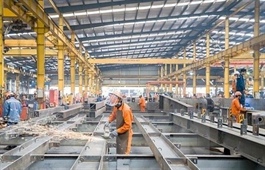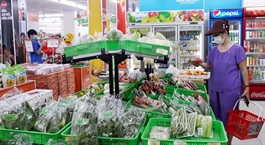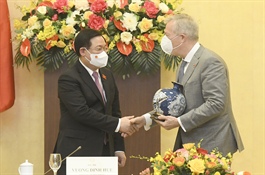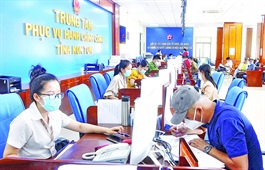Vietnam Gov’t tightens grips on prices of strategic commodities
Vietnam Gov’t tightens grips on prices of strategic commodities
Government agencies would continue to closely follow the impacts of the Russia-Ukraine conflict on prices of petrol and other products to map out different scenarios accordingly.
The Government’s efforts for price management are facing huge challenges from rising prices of key commodities in the global market.
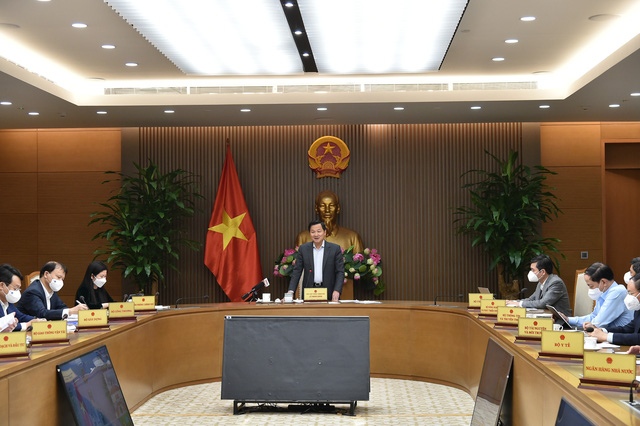
Overview of the meeting. Photo: VGP |
The key priority for the Government in the coming time is to keep a close eye on the prices of strategic commodities that are subject to price control.
Deputy Prime Minister Le Minh Khai stressed the view during a Government meeting on March 14, asking the authorities to take measures and prevent prices of essential goods and products such as petrol, steel, cement, transportation services, animal feed, medical equipment, and rice from rising uncontrollably.
While Vietnam has been successful in keeping stable market prices to aid the businesses and people, Khai noted the price management efforts are facing huge challenges from rising prices of key commodities in the global market.
Khai called for Government agencies to closely follow the impacts of the Russia-Ukraine conflict on prices of petrol and other products to map out different scenarios accordingly.
Regarding fuel and gas products, Khai noted the price stabilization fund had been used extensively to keep the prices from rising in the past months, so the room for further maneuver is quite limited, he added.
From April 1, the Government is scheduled to cut environmental protection tax for these products by half, and the move is still pending approval from the Standing Committee of the National Assembly.
With a lower environmental protection tax, however, Vietnam’s petrol prices would be cheaper compared to regional countries, for which Khai stressed the necessity for localities to prevent cross-border smuggling of petrol products.
Another key aspect in price management mentioned by Khai is to ensure sufficient supplies of goods and products in high demand.
“It is imperative to avoid the supply shortages or failure to distribute goods to the market on time which may cause prices to surge and public dissatisfaction as a result,” Khai said.
In this context, Khai requested the State Bank of Vietnam (SBV), and other agencies to keep stable macroeconomics with flexible management of both monetary and fiscal policies to aid the price management efforts.
Deputy Minister of Industry and Trade Do Thang Hai said since early 2022, the prices of petrol products expanded at 20-39%, significantly lower than the fluctuation range of 44-60% in the global market, thanks to the price stabilization fund.
Thang Hai said supplies of petrol for the domestic market are guaranteed in March, and noted the Ministry of Industry and Trade has asked major fuel distributors to turn to import sources in the upcoming months.
The retail prices of biofuel E5-RON92 and RON95 in Vietnam rose to an all-time high of VND28,980 (US$1.27) and VND29,820 ($1.3), respectively, on March 11.
The latest price adjustment marked the seventh hike in a row since mid-December 2021, bringing the prices of petroleum products to above the previous peaks in July 2014 of VND26,140 per liter and closer to VND30,000 per liter.





